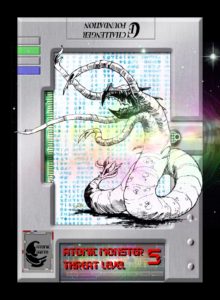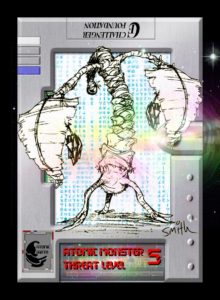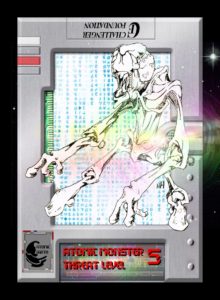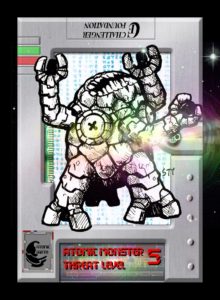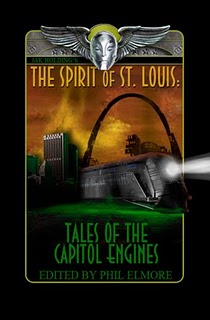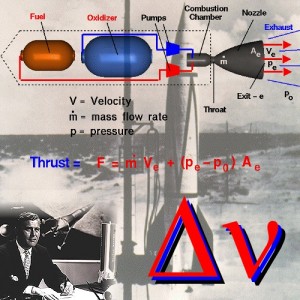 Delta-vee presents classic Old Time Radio productions and modern audio dramas, today’s episode: “Sam, This Is You”. Murray Leinster wrote more than 1500 short stories and novels during an extremely prolific writing career under a variety of pseudonyms, the “Leinster” persona being the most famous of them. His writing career began well before World War I when he wrote for a wide variety of genre fiction magazines, including westerns, mysteries, and romance, but it wasn’t until pulp science fiction started to become widely accepted in the 50s and 60s that he published routinely under his real name, William Fitzgerald Jenkins. Leinster accumulated many “sci-fi firsts” to his credit, including genre conventions such as parallel universe stories and the universal translator. Leinster’s most famous story is unquestionably “A Logic Named Joe”, where he predicts not only personal computers associated with everyday tasks, but the existence of a pervasive network of interconnected information systems. The “Sideways Award for Alternate History” was created in 1995 to recognize outstanding parallel universe stories, and takes its name from Leinster’s story “Sideways In Time”. Leinster’s story “Sam, This Is You” dabbles in time travel without dipping into the complex arguments of causality and predetermination that accompany this kind of exercise in the modern and post-modern storytelling era. Instead, Leinster lets events play out in a continually unfolding drama that assumes history will play out more or less the same way regardless of outside meddling; that era’s optimistic outlook stands in sharp contrast to contemporary attitudes of mistrust and fear that now form the prevalent reaction to personal insecurity. “Sam, This Is You” first saw print in the May 1955 issue of Galaxy magazine; this episode of X Minus One first aired on October 31, 1956. And now, our feature presentation …. read more
Delta-vee presents classic Old Time Radio productions and modern audio dramas, today’s episode: “Sam, This Is You”. Murray Leinster wrote more than 1500 short stories and novels during an extremely prolific writing career under a variety of pseudonyms, the “Leinster” persona being the most famous of them. His writing career began well before World War I when he wrote for a wide variety of genre fiction magazines, including westerns, mysteries, and romance, but it wasn’t until pulp science fiction started to become widely accepted in the 50s and 60s that he published routinely under his real name, William Fitzgerald Jenkins. Leinster accumulated many “sci-fi firsts” to his credit, including genre conventions such as parallel universe stories and the universal translator. Leinster’s most famous story is unquestionably “A Logic Named Joe”, where he predicts not only personal computers associated with everyday tasks, but the existence of a pervasive network of interconnected information systems. The “Sideways Award for Alternate History” was created in 1995 to recognize outstanding parallel universe stories, and takes its name from Leinster’s story “Sideways In Time”. Leinster’s story “Sam, This Is You” dabbles in time travel without dipping into the complex arguments of causality and predetermination that accompany this kind of exercise in the modern and post-modern storytelling era. Instead, Leinster lets events play out in a continually unfolding drama that assumes history will play out more or less the same way regardless of outside meddling; that era’s optimistic outlook stands in sharp contrast to contemporary attitudes of mistrust and fear that now form the prevalent reaction to personal insecurity. “Sam, This Is You” first saw print in the May 1955 issue of Galaxy magazine; this episode of X Minus One first aired on October 31, 1956. And now, our feature presentation …. read more
Podcast: Play in new window | Download
 It’s a full-blown war of the worlds here in the reaction chamber. Curt and I get our prep on for the coming day when the aliens invade our shores. We know its coming. You know its coming. It’s up to us to convince all the poor saps who just won’t see the light that the visitors are not our friends! It’s a short prep, but we put some basic things in our prep kit and review a smattering of historical documents. The Martians are coming!
It’s a full-blown war of the worlds here in the reaction chamber. Curt and I get our prep on for the coming day when the aliens invade our shores. We know its coming. You know its coming. It’s up to us to convince all the poor saps who just won’t see the light that the visitors are not our friends! It’s a short prep, but we put some basic things in our prep kit and review a smattering of historical documents. The Martians are coming!
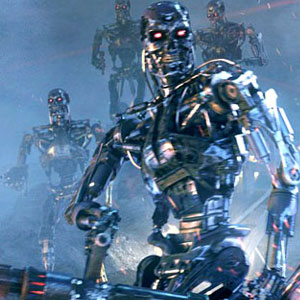 A short, unexpected break over the holidays for the podcast, but at least we got the shopping apocalypse preps done in time for Black Friday! This time around we are prepping for the rise of the machines, the steel reign, the coming of the berserkers. This is the Robopacalypse! Curt and I take a look at the historical documentation providing evidence that the machines will rise, and examine some of the commonalities they all have in, er, common. This lets us get our preps together, anticipate the ways in which the machines will rise, and put some gear into our toolkits. The machines will rise, they may already have taken over our world. We’re prepped. Are you?
A short, unexpected break over the holidays for the podcast, but at least we got the shopping apocalypse preps done in time for Black Friday! This time around we are prepping for the rise of the machines, the steel reign, the coming of the berserkers. This is the Robopacalypse! Curt and I take a look at the historical documentation providing evidence that the machines will rise, and examine some of the commonalities they all have in, er, common. This lets us get our preps together, anticipate the ways in which the machines will rise, and put some gear into our toolkits. The machines will rise, they may already have taken over our world. We’re prepped. Are you?

